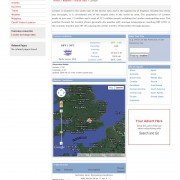The Importance of Readable URLs and Best Practices
When embarking on a new project or discussing website architecture, URLs invariably come up. Surprisingly, many business owners and marketers underestimate the significance of their website’s URL structure. However, search engines have consistently advised that web addresses, or URLs (Uniform Resource Locator), should be as straightforward and understandable as possible – and most importantly represent your brand!
Two-fold Benefits of Simple URLs
User Experience: A simple URL, such as www.yourdomain.com/transport, is more user-friendly than a complex one like www.yourdomain.com/123?_y8. A clear and concise URL aids users in navigating your website and understanding its content.
Search Engine Indexing: Dynamic URL structures, especially on e-commerce and database-driven sites, can be problematic. As product inventories change, URLs might appear as
www.yourdomain.com/?sessionid=4&productID=537.
A more descriptive URL, like
www.yourdomain.com/red-tshirts/?sessionid=4&productID=537,
is preferable.
Word Separators: Hyphens vs. Underscores
When separating words in URLs, it’s best to use hyphens rather than underscores. This is because Google doesn’t recognise underscores as word separators. For example, “redtshirts” and “red_tshirts” are viewed similarly by Google. The preference would be: “red-tshirts”. While this might seem like a minor detail, it’s essential to consider when setting up new web pages. However, if your existing website uses underscores, it will not hurt if you don’t change them. It’s worth noting that other search engines don’t differentiate between underscores and hyphens.
Character Limitations in URLs
When considering URL structures, it’s essential to be aware of the technical constraints set by search engines and domain registrars. The maximum length for a domain name is 63 characters, plus an additional four for extensions like .com. Shorter domains are generally more user-friendly, and easier to recall, and share.
For complete web addresses, search engines can index up to 2047 characters. However, URLs exceeding 1855 characters might produce errors in search results when clicked. As a best practice, keep URLs under 1855 characters. Many Content Management Systems (CMS), like WordPress, restrict URL lengths to 200 characters due to database limitations.
A well-structured URL is not only beneficial for search engine indexing but also enhances user experience. A URL with multiple or unusual characters is challenging to remember and share. On the other hand, a well-formed URL is easily recalled and discussed, making it an asset for your online presence.










Leave a Reply
Want to join the discussion?Feel free to contribute!